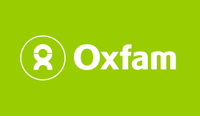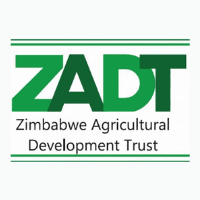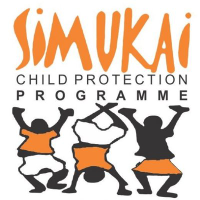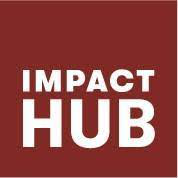Terms of Reference (TOR) for Soap Making Training
Job Description
1. Introduction
Impact Hub Harare is spearheading the Digital Skills 4 Youth project, which involves the
development of MakerSpaces in rural areas including Chiredzi and Tsholotsho. These
spaces are designed to equip rural youth, particularly young women, with digital skills,
access to technology, and mentorship in entrepreneurship. A special focus is placed on
sustainable agriculture and value-added production. Under it’s training programs the
Tsholotsho Makerspace training aims to initiate a three-month training program in soap
making for 20 participants. This program is designed to equip trainees with essential skills
in crafting soap using local, natural ingredients such as honey, goat milk, and marula,
fostering both skill development and entrepreneurship within the community.
Duties and Responsibilities
2. Objectives
The consultant will be responsible for:
●
Conducting an initial assessment of the current knowledge and practices among
the participants.
●
Developing a customized training curriculum that includes theoretical knowledge
and practical skills.
●
Delivering a series of training sessions covering:
○
Provide hands-on experience in basic soap making techniques.
○
Educate participants on sourcing and utilizing local raw materials.
○
Teach soap formulation and production techniques.
○
Promote entrepreneurship by enabling participants to start and manage
small-scale soap production businesses.
3. Target Participants This program will cater to 20 individuals from the Tsholotsho
community, especially those interested in developing skills in soap making and small
business management.
4. Training Duration and Schedule
Duration: 4 days
Sessions: Planned to cover both theoretical and practical aspects thoroughly,
scheduled to maximize learning without overwhelming participants.
5. Training Content
Participants will learn about:
The basics of soap making and its economic benefits.
The chemistry of soap making, including saponification processes.
Practical skills in soap production, with direct, hands-on experience.
Safety and quality control measures are essential for soap making.
Strategies for effective packaging, branding, and marketing of soap products.
6. Training Methodology
The training approach will include:
Theoretical lessons to provide foundational knowledge.
Practical demonstrations to show soap making processes.
Hands-on production exercises to build real-world skills.
Group discussions and peer learning to enhance collaborative learning and
problem-solving.
7. Expected Outcomes By the end of the training, participants are expected to:
Master the fundamental techniques of soap making.
Produce high-quality soap using locally sourced ingredients.
Understand and implement basic business principles for running a soap
production enterprise.
Apply safety and quality standards in their production processes.
Qualifications and Experience
7. Consultant Qualifications The consultant should possess:
At least 3 years of practical experience in soap making, particularly using natural
ingredients such as honey, goat milk, and marula.
Proven experience in training and capacity building in fields related to cosmetics
or natural product manufacturing.
Strong communication and presentation skills, capable of effectively transferring
knowledge and engaging a diverse audience.
8. Reporting The consultant will report directly to the Project Coordinator.
9. Budget The budget will cover:
Consultancy fees for the duration of the program.
Travel expenses for the consultant to and from the training venue.
Any other relevant expenses incurred during the training period.
10. Evaluation Criteria
Proposals will be evaluated based on:
Relevance of the proposed training methodology to our objectives of empowering
participants with soap making skills using local resources.
Consultant’s experience with similar soap making projects.
Cost-effectiveness of the proposal, ensuring maximum value for resources
expended.
How to Apply
11. Application Process
Interested candidates must submit:
A detailed proposal outlining their approach and methodology for the soap
making training.
A financial proposal detailing the budget.
A CV highlighting relevant experience and qualifications in soap making and
training.
At least two references from previous clients or organizations where similar training
was conducted.
12. Submission Requirements The technical and financial proposals should be sent in a
sealed envelope or electronically with the subject line clearly marked “Makerspace
Training: Soap Making” and addressed to: The Purchasing Committee Impact Hub Harare
194 Baines Avenue HARARE OR Email: [email protected] copy
[email protected] by 04 April 2025.
13. Conclusion
This consultancy is a critical component of our commitment to fostering sustainable
development and entrepreneurship in Tsholotsho. By equipping local individuals with the skills to produce and market natural soaps, we aim to encourage economic
independence and utilize local resources effectively, contributing to the broader goals of community empowerment and sustainable practices
Similar Listings

Terms Of Reference
Oxfam — Harare

Terms Of Reference
Oxfam — Harare

Call for Consultancy Service for Board Members Training
Community Organisation for Poverty Alleviation in Zimbabwe (COPAZ) — Harare

Terms of Reference for a Consultant to Assess the impact of the ZADT Revolving Fund on Funded Women and Youth under the CAUSEWAY Project.
Zimbabwe Agricultural Development Trust — Harare

CALL FOR EXPRESSION OF INTEREST FOR CONSULTANCY SERVICES FOR THE DESIGN AND IMPLEMENTATION OF A CAPACITY DEVELOPMENT PROGRAM FOR SIMUKAI CHILD PROTECTION PROGRAMME
Simukai Child Protection Program — Harare

Location: Harare
Company: Impact Hub Harare
Expiry Date: 2025-04-04 00:00:00
